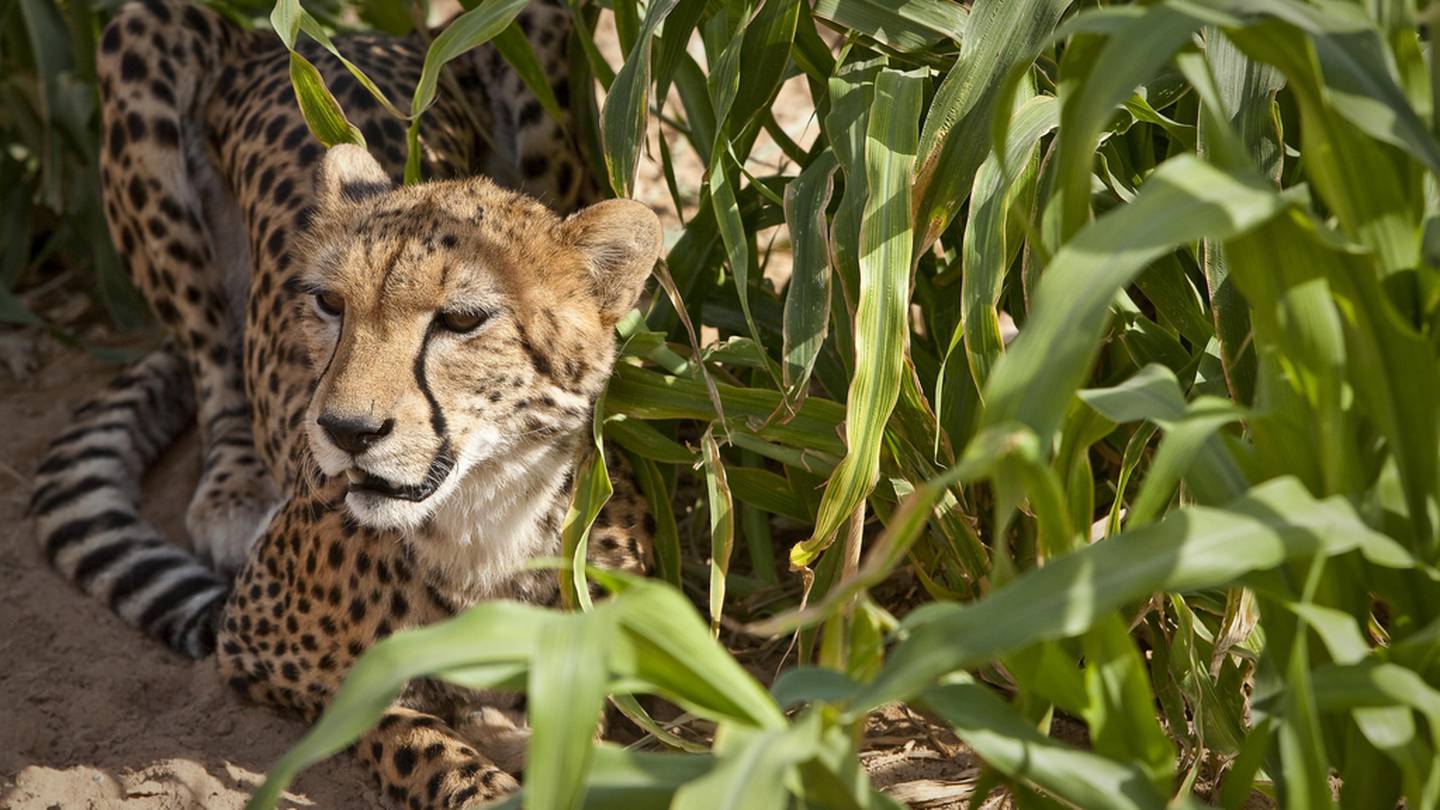Banks given tips on tackling $23bn illegal wildlife trade

A guide to help the world’s banks spot transactions linked to the illegal trade in wildlife has been launched in the UAE.
The illicit industry is estimated to be worth $23 billion a year, threatening the future of at-risk species such as the cheetah, pangolin and African elephant.
Compiled in partnership with the UAE and UK governments, the measures are intended to stem the flow of money to the international criminal organisations that profit from the trade.
It is a dark, bloody and self-defeating trade conducted by serious organised crime gangs that destabilises ecosystems and fuels corruption
Patrick Moody, UK ambassador to the UAE
A list of red flags covering e-commerce, shipping, corruption, money laundering, client profiling and general transactions has been issued to banks.
Details on how to act on those suspicions have been circulated to encourage action by authorities to choke off funds to crime gangs selling wildlife online.
:quality(70)/cloudfront-eu-central-1.images.arcpublishing.com/thenational/BO5ACWNBGPSSDFQINIQLJA4GGE.jpg)
Jennifer Croes, associate director of Emirates Nature under the umbrella of the World Wildlife Fund, said Covid-19 opened a “Pandora’s box” of the potential damage caused by the trade in animals, and the risk of zoonotic disease transmission. Zoonotic diseases are those that jump from animal to human.
“This has a direct threat on human health and international biosecurity. It is a global challenge and all of our concern,” she said.
“This demand is being driven by programmes like Tiger King [a TV show about a tiger zoo owner] and social media influencers posing with exotic animals.
“Here in the region and the UAE, we are in a unique geographical position where products are transited here before they reach their final destination.
“Banks are the eyes and ears on the ground to identify suspicious activities, as you can buy anything online. If we see something, we must report it.”
Institutions are advised to pay close attention to the geographical source and destination of financial transactions.
The most commonly trafficked wildlife originates in only a few African countries, while other creatures come from various destinations in Asia.
Businesses were told to watch out for inconsistent shipping commodities, or split consignments – a tactic used by traffickers to avoid losing all their illegal goods in one go.
Airline passengers frequently travelling on known trafficking routes with tickets paid for by a third party or in cash should also raise suspicion, the report said.
Experts exposed the level of international corruption and the role it played in enabling illegal wildlife transactions.
:quality(70)/cloudfront-eu-central-1.images.arcpublishing.com/thenational/Q56TIZMP64W4DE2VHW7UKNHYSM.jpg)
Large cash deposits could signal wildlife trade
The report warned banks to look out for large cash deposits by government officials working in wildlife protection agencies, border control authorities or customs and revenue officials.
It also advised extra scrutiny for sudden unexplained wealth associated with government officials working in forestry agencies, wildlife management authorities, wildlife parks and zoos.
Ahmed Ali Al Sayegh, UAE Minister of State at the Department of Foreign Affairs and International Co-operation, said a united front was needed to combat the trade.
“The figures are startling. Around 55 African elephants are killed for their tusks every day, with the illegal wildlife trade the fourth-biggest illegal trade in the world.
“These criminal organisations also threaten the people who live alongside the wildlife being targeted.”
Mr Al Sayegh is deputy chairman of Emirates Nature – WWF and co-chairman of the UAE-UK Business Council, among other positions.
“This partnership is key in mitigating this global issue,” he said. “We are all harmed by this.”
The guide has been translated into Arabic and Mandarin and distributed to global financial centres in the UAE, Hong Kong, Singapore and elsewhere.
According to the World Wildlife Fund, rhino poaching has soared since 2007 with an average death rate of about 100 each month.
Data from industry monitor Traffic confirmed at least 23.5 tonnes of pangolins and their parts were trafficked in 2021 alone.
“These tools provide essential guidance to financial institutions and government agencies in China,” said Ling Xu, the China office director at Traffic.
“By delivery of training and webinars, we are filling the gaps in understanding financial flows and support measures to mitigate the risks of wildlife crime.”
:quality(70)/cloudfront-eu-central-1.images.arcpublishing.com/thenational/ABB34NYTSBD2ZMSK5PMR2TPFCE.jpg)
Middle East on transit route for smugglers
Dubai and Doha were confirmed as key transit routes from Africa to Asia, and this presented an opportunity for border officials to intercept shipments and contraband smuggled by passengers. In 2018, a report showed border officials in the UAE were seizing more exotic animals in their battle against traffickers who were using Dubai as a transit point.
But the problem persists. Booming online sales of animals captured from the wild were highlighted as major risk, with the digital marketing of pets or wildlife products often displayed in closed or secret groups.
Experts said sellers typically mentioned the word “serious buyer” when looking to sell.
Initial social media connections between sellers and a buyer were then taken offline or on to encrypted messenger apps to avoid detection.
Patrick Moody, the UK ambassador to the UAE, said that by following the money, criminal gangs could be shut out of the trade.
“Too many animals and species are being consigned to the pages of history by the illegal trade in wildlife,” he said.
“It is a dark, bloody and self-defeating trade conducted by serious organised crime gangs that destabilises ecosystems and fuels corruption, and rips sustainable economic development opportunities from people in rural communities.
“It leaves a huge global money trail that can lead us to the gangs involved.”
Updated: March 04, 2022, 4:44 AM





